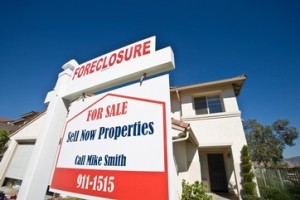
By George Kennedy
On July 1, 2015, the Fourth Circuit issued a published opinion in the civil case of Houck v. Substitute Trustee Services, Inc. The Fourth Circuit held that the district court’s dismissal of Plaintiff’s claims brought under 11 U.S.C. § 362(k) was erroneous, and consequently vacated the district court’s judgment, reversed its order, and remanded the case for further proceedings.
Plaintiff’s Foreclosure Proceedings and Petition for Bankruptcy
In 2000, Plaintiff Diana Houck secured financing from Lifestore Bank, F.S.A. to purchase a mobile home for her property. In 2007, Houck refinanced the loan so that she could make renovations to her family farmhouse. Two years later, however, Houck lost her job and began to have difficulty making loan payments. Because of this, Houck asked Lifestore for a loan modification. In response, Lifestore referred Houck to a debt collection agency, Grid Financial Services, Inc., which denied Houck’s request.
In July 2011, the Hutchens Law Firm, representing both Lifestore and Grid Financial, served Houck with a notice of foreclosure. To stop the foreclosure proceedings, Houck filed for Chapter 13 bankruptcy protection because the filing of a bankruptcy petition triggers an automatic stay for certain debt collection actions under 11 U.S.C. § 362(a). While the bankruptcy court denied this first petition , Houck again filed for Chapter 13 bankruptcy protection. After filing the second petition, Houck called the Hutchens Law Firm to notify it of the bankruptcy filing. Notwithstanding Houck’s second bankruptcy petition, however, the Substitute Trustee, also represented by Hutchens, sold Houck’s property in a foreclosure sale.
Dismissal of Plaintiff’s Claims by the District Court
To undo the sale of her property, Houck commenced an action against Lifestore, Grid Financial, and the Substitute Trustee. Houck alleged a claim against the three Defendants under 11 U.S.C. § 362(k) for violation of the automatic stay triggered by the filing of a bankruptcy petition. Houck also alleged related state law claims.
In two separate orders, one in October 2013 and the other in February 2014, the district court dismissed all of Houck’s claims. In October 2013, the district court granted the Substitute Trustee’s motion to dismiss under Federal Rule of Civil Procedure 12(b)(6). The district court held that Houck failed to allege facts that showed that the Substitute Trustee’s violation of the automatic stay was willful. Since this is a necessary element for a claim under 11 U.S.C. § 362(k), the district court held that Houck failed to state a claim for relief and granted the Substitute Trustee’s motion. In February 2014, the district court dismissed the remaining claims against Lifestore and Grid Financial on the grounds that the court lacked subject matter jurisdiction to hear Houck’s claim under 11 U.S.C. § 362(k). The district court reasoned that such claims can only properly be heard in federal bankruptcy courts, and not district courts. The district court then dismissed Houck’s related state law claims.
The District Court Reversed
Ultimately, the Fourth Circuit held that the district court erred in dismissing Houck’s claims and rejected the reasoning underlying the district court’s holding. Yet before resolving Houck’s claims on the merits, the Fourth Circuit established that it had jurisdiction to hear Houck’s appeal. At issue in terms of appellate jurisdiction was whether Houck was appealing from a final judgment as required by 28 U.S.C. § 1291(a). The Fourth Circuit held that Houck was in fact appealing from a final judgment under the doctrine of cumulative finality. In so holding, the Fourth Circuit reasoned that the district court’s initial dismissal of Houck’s claims against the Substitute Trustee and subsequent dismissal of Houck’s claims against Lifestore and Grid Financial had the cumulative effect of rendering all Houck’s claims against these defendants as decided with finality.
Next, the Fourth Circuit addressed the district court’s holding that it did not have jurisdiction to hear claims brought under 11 U.S.C. § 362(k). The district court held that such claims can only be brought in the bankruptcy courts, and therefore, district courts do not have jurisdiction to resolve them. The Fourth Circuit disagreed, however, and held that the statute provides both district courts and bankruptcy courts with original jurisdiction over claims brought under 11 U.S.C. § 362(k). Therefore, the Fourth Circuit held the district court erred in dismissing Houck’s 11 U.S.C. § 362(k) claims against Lifestore and Grid Financial for lack of subject matter jurisdiction.
Lastly, the Fourth Circuit reversed the district court’s dismissal of Houck’s claims against the Substitute Trustee under Rule 12(b)(6) of the Federal Rules of Civil Procedure. In dismissing Houck’s claim, the district court argued that Houck failed to allege facts that, if true, would have satisfied all the required elements under 11 U.S.C. § 362(k). In particular, the district court held that Houck failed to provide any facts showing that the Substitute Trustee’s violation of the automatic stay was willful. The Fourth Circuit disagreed, and argued that by notifying the Hutchens Law Firm of her bankruptcy petition, Houck provided the Substitute Trustee with notice since the Substitute Trustee was also represented by Hutchens. Therefore, the Fourth Circuit held that Houck did allege facts to show that the Substitute Trustee’s violation of the automatic stay was willful because Houck alleged that the Substitute Trustee had notice of Houck’s bankruptcy petition which triggers an automatic stay under 11 U.S.C. § 362(a).
Vacated, Reversed in Part, and Remanded
Because the district court erred in dismissing Houck’s claims against Lifestore, Grid Financial, and the Substitute Trustee, the Fourth Circuit vacated the district court’s judgment, reversed its order, and remanded the case for further proceedings.





